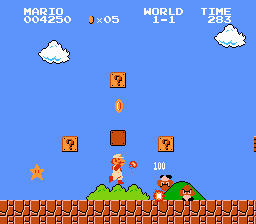What Are the Effects of Video Games?

Video games can be good or bad depending on how one views them. Parents and education experts usually think videogames are not good, especially when played for long periods of time. However, some research indicates that video games can teach valuable skills.
How many kids play video games? And for how long? According to theesa.com, 59 percent of gamers are males, and 41 percent are females. Of all gamers, 27 percent are under the age of eighteen.
While the average gamer spends about 6.5 hours on a game console per week, when considering only those ages 8 to 12, that number doubles to 13 hours of video games a week, according to vanderbilt.edu. This breaks down to almost two hours per day.
For MMS students, the average is even higher at eighteen hours a week–nearly three hours per day. This average is based off a survey of 66 MMS students (22 in each of the three grades levels).
With so many hours being logged on video games, what are the effects on kids? Some say video games can have a negative social impact, making kids more shy and withdrawn from peers. This is because the more time spent gaming means less time is spent talking, playing outdoors, or engaging in organized sports or games that require compromise and communication.
Also, certain video games have been linked to an increase in violent thoughts and aggressive behaviors.
Violent video games have also been linked to drug and alcohol use. A 2006 study from the University of Pittsburgh, for example, showed that Grand Theft Auto players were more likely to use marijuana. In 2011, a similar study at Brigham Young University “concluded that video game use, especially violent ones, was correlated with both drinking and drug use.” The study also found that “Those who frequently played such games were likewise more likely to experience poorer quality relationships.”
Another negative effect of video games is muscle pain. Sitting in the same position for long period of time, often tense, can causes strain on certain muscles that results in neck or back pain, temporary twitching, or cramping of the hands and wrists.
Also, video games can hurt players’ eyesight. Rebuildyourvision.com states that gamers can protect their vision by taking frequent breaks and reducing glare from other light sources such as windows or additional lights in the room.
Finally, those who game regularly may suffer academically as well. Video games may offer a distraction that leads to less time spent studying, completing homework, or even sleeping at night–making students sluggish or unfocused during the school day.

There are many cases against playing video games excessively, but if played for reasonable amounts of time, could they really be helping kids?
Video games involve strategy and tactics which can improve reflexes and one’s ability to think. Studies have shown that kids who play strategy games, simulation games, and role-playing games tend to be better at solving problems and better at visualizing things in there minds.
According to raisesmartkid.com, video games can improve kids’ ability to follow instructions. Also they can help with problem solving.
Even young kids who play games such Angry Bird and Cut the Rope develop creative ways to solve problems and puzzles and demonstrate better hand-eye coordination and reaction time.
So what do you think? Are video games human-consuming monsters? Or are they harmless entertainment? Regardless of opinions, it seems the gaming industry is here to stay. 63% of U.S. households have at least one person that plays video games regularly. According to the NPD group, the amount of money made off of video games in 2012 was over 6.7 billion dollars. Also the average gamer is about 35 years of age–indicating that video games aren’t just for kids anymore.
Since video games have become such a huge part of American culture and teen life, the best defense seems to be knowing the possible risks and managing the hobby so that it doesn’t interfere with school, careers, relationships, or physical health.
Like any hobby, activity, or even food–enjoy it, but practice moderation.











